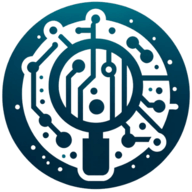In the rapidly evolving world of technology, IT recruitment trends are constantly changing. This blog post delves into the latest trends shaping the IT recruitment landscape. From the rise of remote hiring to the increased importance of soft skills, we'll explore how these trends are transforming the way companies recruit IT talent.
The Rise of Remote Hiring
The global pandemic has accelerated the trend of remote hiring in the IT industry. Companies are now more open to hiring talent from different parts of the world, breaking the geographical barriers that once limited their talent pool. This shift towards remote hiring has also led to changes in the recruitment process, with virtual interviews becoming the norm.
Moreover, remote hiring has also influenced the type of skills that employers look for in IT professionals. With remote work, the ability to work independently and communicate effectively has become more important than ever. As a result, soft skills are now a major factor in IT recruitment.
The Growing Importance of Soft Skills
In the past, IT recruitment was heavily focused on technical skills. However, the trend has shifted towards a more balanced approach, with soft skills becoming equally important. Employers are now looking for IT professionals who can not only solve complex technical problems, but also effectively communicate their solutions to non-technical team members.
In addition, the ability to adapt to change and learn new technologies quickly is highly valued in the IT industry. As technology continues to evolve at a rapid pace, IT professionals need to keep up with the latest trends and tools. Therefore, a growth mindset and a passion for learning are key traits that recruiters look for in IT candidates.
The Impact of AI on IT Recruitment
Artificial Intelligence (AI) is revolutionizing the IT recruitment process. From screening resumes to scheduling interviews, AI is automating various aspects of recruitment, making the process more efficient and less time-consuming.
AI-powered recruitment tools can analyze a large number of resumes in a short time, identifying the most suitable candidates based on their skills and experience. These tools can also predict a candidate's job performance, helping recruiters make more informed decisions.
However, the use of AI in recruitment also raises ethical and legal concerns. Issues such as bias in AI algorithms and data privacy are major challenges that need to be addressed.
The Role of Employer Branding in IT Recruitment
Employer branding is another trend that is shaping the IT recruitment landscape. In a competitive job market, companies need to differentiate themselves to attract top IT talent. A strong employer brand can help companies stand out and attract the best candidates.
Employer branding involves showcasing the company's culture, values, and benefits to potential candidates. It's about creating a positive image of the company and showing why it's a great place to work. In the IT industry, factors such as opportunities for learning and development, a flexible work environment, and a culture of innovation are particularly important in attracting talent.
The Shift Towards Skills-Based Hiring
The IT industry is moving away from traditional degree-based hiring towards a more skills-based approach. With the rapid pace of technological change, the skills that IT professionals need are constantly evolving. As a result, a degree is no longer a reliable indicator of a candidate's ability to perform a job.
Instead, companies are focusing on a candidate's skills and experience. They are using various methods to assess these skills, such as technical tests, coding challenges, and project-based interviews. This shift towards skills-based hiring is helping companies find the right talent, regardless of their educational background.
The Emergence of Diversity and Inclusion in IT Recruitment
Diversity and inclusion have become a major focus in IT recruitment. Companies are recognizing the benefits of a diverse workforce, such as increased creativity, better decision-making, and improved performance.
To promote diversity and inclusion, companies are implementing various strategies, such as bias-free recruitment practices, diversity hiring targets, and inclusive workplace policies. They are also investing in diversity and inclusion training for their recruitment teams.
However, achieving diversity and inclusion in IT recruitment is not an easy task. It requires a long-term commitment and a holistic approach that addresses all aspects of the recruitment process.
Navigating the Future of IT Recruitment
The world of IT recruitment is undergoing significant changes. From the rise of remote hiring to the growing importance of soft skills, these trends are reshaping the way companies recruit IT talent. By understanding these trends, companies can adapt their recruitment strategies and attract the best IT talent. As we move forward, it's clear that the future of IT recruitment will be more diverse, inclusive, and focused on skills rather than degrees.

